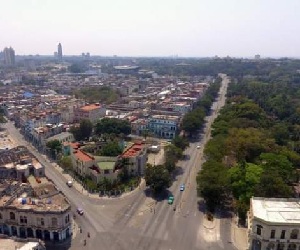 Mobilizing territorial creativity, using knowledge, science and innovation in line with local needs, based on an intersectoral and transdisciplinary vision, was identified and scientifically validated as a key strategy by Party First Secretary and President of the Republic of Cuba, Miguel Díaz-Canel Bermúdez.
Mobilizing territorial creativity, using knowledge, science and innovation in line with local needs, based on an intersectoral and transdisciplinary vision, was identified and scientifically validated as a key strategy by Party First Secretary and President of the Republic of Cuba, Miguel Díaz-Canel Bermúdez.
Undoubtedly, local development is today a public policy of strategic importance, with the Constitution itself codifying the autonomy and legal personality of provinces and municipalities, with a view toward promoting economic and social dynamics.
It is no coincidence that this year a series of legal norms has been approved to promote territorial development and better manage financing, banking, budgetary and pricing processes in local projects, without bureaucratic hurdles.
Perhaps this is why it is even more gratifying to learn that the United Nations Development Program (UNDP) recognized 29 Cuban municipalities with a very high rate of human development, in a report prepared in coordination with the World Economy Research Center and the participation of several Cuban institutions
Under the title “Ascenso a la raíz” (Ascent to the Root), a Local Perspective on Human Development in Cuba 2019, the recent study also indicates that the index is considered high in 51 municipalities; medium in 75 and low in only 13. Meanwhile, no province, as a general estimate, presents a low human development index, while Havana, Villa Clara, Matanzas and Pinar del Río display the best results.
The Human Development Index, developed by UNDP in 1990, has classified some 189 countries in four levels, taking into account life expectancy, education and per capita income.
Despite the obstacles of the current context, Cuba has put its human development potential and scarce economic resources to work to confront the pandemic, both at the local and national level, as well as globally, through international collaboration.
In this sense, the report also represents an opportunity for policy makers and territorial government bodies to move forward with greater autonomy and authority.
(Taken from Granma)